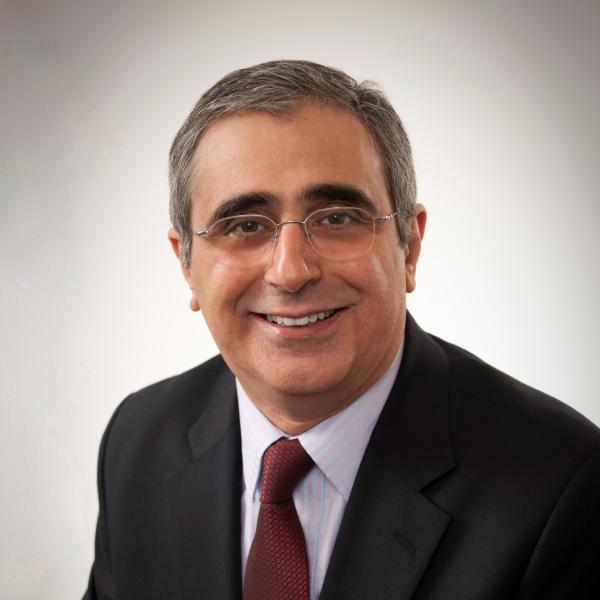Anaerobic digestion
PhD opportunities in the category Energy generation - Anaerobic digestion (AD).
PhD Supervisors
Improved reactor design and operation
Supervisors: Professor Mohamed Pourkashanian, Dr Kevin Hughes and Dr Davide Poggio.
This PhD project will look at possible strategies to develop a new generation of digesters, which can perform a faster and more compact conversion of biowastes. There are different approaches that will need to be explored and evaluated, which may modify both the design and the operation of the digester.
For further information contact Professor Derek B Ingham.
- Summary of this project
Anaerobic digestion is usually carried out in single semi-continuous reactors, especially due to their simpler construction and operation. However, this simplicity implies relatively low conversion rates and productivities and, as a consequence, larger digester volumes are needed.
This PhD project will look at possible strategies to develop a new generation of digesters, which can perform a faster and more compact conversion of biowastes. There are different approaches that will need to be explored and evaluated, which may modify both the design and the operation of the digester. Some examples are: biomimicry, model-based design of reactors, microaerobic conditions, staged and temperature phased digesters, use of activated or degradable carriers.
The outcome of this first part of the project will be a set of design and operational recommendations that will be experimentally tested in a laboratory environment. A prototype will need to be built and its performance will be compared to existing CSTR reactors.
The focus of the study will be on micro and small-scale digestion, where process intensification would result in comparatively high advantages. In this regard, the project benefits from existing collaborations with industrial partners and project developers, which can contribute both to the design phase and potential scale-up considerations.
Power generation in rural communities
Supervisor: Professor Mohamed Pourkashanian
This research will look at ways to evaluate microgrid systems and models, identifying how they can be improved by jointly considering social and technical aspects.
For further information contact Professor Derek B Ingham.
- Summary of this project
For electrification projects to be successful, they must be suitable for the needs of the communities using them. Whilst electricity generation from some renewable sources is intermittent, hybrid solutions integrated with other forms of power generation and storage are able to provide reliable power, and can be optimised to a lower economic cost. There is also potential for smart grids and more adaptive local demand.
Models and systems used for delivering energy to rural areas have been designed in industrialised countries, so there is uncertainty about how appropriate they are for developing countries. Areas where socio-technical nexus issues are particularly important include modelling load profiles, calculating willingness to pay and ongoing maintenance. This research will look at ways to evaluate microgrid systems and models, identifying how they can be improved by jointly considering social and technical aspects.
The major current areas of research in the group include
- carbon capture technology from power generation
- low emission CCGT technology
- clean coal/biomass combustion technology
- fuel cells
- alternative aviation fuels
- biogas from waste
Modelling, design and testing of integrated anaerobic digestion and hydroponics systems for closed-loop urban applications
Supervisors: Professor Mohamed Pourkashanian, Dr Kevin Hughes and Dr Davide Poggio.
This PhD project will look closer at these 'waste to food' systems, and at the synergies that exist between the waste degradation and food production parts of the system.
For further information contact Professor Derek B Ingham.
- Summary of this project
Anaerobic digestion (AD) will play a major role in the future circular economy, in particular enabling biological closed loops with complete recycling of nutrients and improved recovery of energy. An emerging opportunity in urban environments is the integration of organic wastes treatment through AD and the re-use of digestate and nutrients in soil-less agriculture such as hydroponics.
This PhD project will look closer at these 'waste to food' systems, and at the synergies that exist between the waste degradation and food production parts of the system. Activities will include the review of past attempts (eg the biological closed-loop for life support in space missions) the modelling of energy, water and nutrients flows and transformations in the different parts of the system, a model-based design and techno-economic evaluation of the system in different scenarios.
Experimental tests may be conducted in laboratory environments, especially to evaluate the digestate-hydroponics interactions. The Energy 2050 group is currently collaborating with a successful micro-AD project in urban settings, and this will allow the student to be involved in a real case scenario.
Development and validation of control strategies for flexible and demand-driven anaerobic digestion
Supervisors: Professor Mohamed Pourkashanian, Dr Kevin Hughes and Dr Davide Poggio.
This project will involve the review of existing control strategies for AD, the use of process modelling to evaluate and benchmark the most appropriate control strategies for different demand-driven scenarios, and the experimental validation of the control strategies at laboratory scale.
For further information contact Professor Derek B Ingham.
- Summary of this project
Bioenergy and anaerobic digestion can have a major role as a source of dispatchable energy in future energy systems with high penetration of intermittent renewables. The Energy 2050 group is involved in different research projects where a flexible operation of anaerobic digestion leads to an improved economy of the whole system.
Examples of these projects are the provision of heat to autonomous desalination systems, the stabilisation of micro-grids in rural electrification projects, and the biomethanation of hydrogen from grid excess electricity (power to methane).
In all these scenarios an improved control of AD is necessary, which is able to match the biogas demand of the system while maintaining process stability. This project will involve the review of existing control strategies for AD, the use of process modelling to evaluate and benchmark the most appropriate control strategies for different demand-driven scenarios, and the experimental validation of the control strategies at laboratory scale.
Optimising anaerobic co-digestion: Improving the outputs and stability of anaerobic processes
Supervisors: Professor Mohamed Pourkashanian, Dr Kevin Hughes and Dr Davide Poggio.
This PhD project will systematically research the possible synergistic effects of co-digestion.
For further information contact Professor Derek B Ingham.
- Summary of this project
Anaerobic co-digestion consists of the anaerobic digestion (AD) of a mixture of two or more substrates with complementary characteristics, so that biogas production, digestate characteristics and process stability are enhanced through their joint treatment. The Energy 2050 group is researching co-digestion for different scenarios, such as the digestion of energy-rich substrates to boost biogas productions in demand driven applications, or to improve the degradation of agricultural by-crops in rural digesters in developing countries.
This PhD project will systematically research the possible synergistic effects of co-digestion. These include
- the enhancement of organic matter decomposition due to the addition of easily degradable substrates (priming effect)
- the increased buffering capacity
- the reduction of inhibitory causes
- the provision of balanced micro and macro nutrients
- the role of fibres as carriers of micro-organisms
- the provision of optimal water content
Modelling will be used to describe mechanistic interactions and design co-digestion strategies in different scenarios, which will be tested and validated with laboratory scale reactors.
Design and development of water desalination plants for rural communities, driven by a hybrid solar-biogas energy system
Supervisors: Professor Mohamed Pourkashanian, Dr Kevin Hughes and Dr Davide Poggio.
This project will investigate the integration of solar energy and biogas to provide heat and electricity to a community-scale desalination system.
For further information contact Professor Derek B Ingham.
- Summary of this project
Freshwater supplies are becoming increasingly stressed as demand increases. Desalination technologies are able to produce drinking water from abundant resources such as seawater. Solar energy has been used extensively in water desalination applications, but a backup source is needed to ensure continued operation of the system during periods of low radiation.
This project will investigate the integration of solar energy and biogas to provide heat and electricity to a community-scale desalination system. Several options for thermal and electrical integration exist, which will need to be analysed through a modelling approach and constrained by the socio-economic characteristics of the targeted communities.
Polygeneration design methods, control optimisation and thermoeconomic evaluation may be used during the project. The research will benefit from one of our current academic international collaborations where a desalination pilot plant is in the process of being built.
Advanced process modelling of AD
Supervisors: Professor Mohamed Pourkashanian, Dr Davide Poggio and Professor Lin Ma.
This project will focus on a variety of strategies and design interventions that can increase the robustness of the AD process and will use a combination of modelling and experimental work to investigate and optimise these.
For further information contact Professor Derek B Ingham.
- Summary of this project
The AD group in is currently working at the state of the art in terms of the biochemical and physiochemical modelling of AD. The aim of this project would be to enhance this further by drawing upon other modelling expertise specifically in computational fluid dynamics (CFD). Such a combined approach can give greater insight into the process and allow design and process optimisation.
This project will focus on a variety of strategies and design interventions that can increase the robustness of the AD process and will use a combination of modelling and experimental work to investigate and optimise these.
Low cost remote monitoring systems for small-scale AD sites
Supervisors: Professor Mohamed Pourkashanian, Dr Davide Poggio and Professor Lin Ma.
This project will involve the selection and field testing of a variety of hardware sensors in order to monitor critical parameters of the AD process.
For further information contact Professor Derek B Ingham.
- Summary of this project
As a continuation of current research into this topic the aim of this project is assess the feasibility of using a set of low cost sensors, along with data acquisition and transmission hardware, to effectively manage the AD process remotely. This topic is of particular relevance for small scale AD since the cost of skilled management staff on-site is financially unfeasible. The work will involve the selection and field testing of a variety of hardware sensors in order to monitor critical parameters of the AD process.
The research will benefit from the available experimental facilities including laboratory-scale digesters, excellent analytical facilities, expertise in the computer modelling of AD process kinetics, mass balance and operational strategies and links with industry through our collaborative work with micro-AD development sites in the UK.
CO2 Utilisation through advanced Biological Methanation
Supervisors: Professor Mohamed Pourkashanian, Dr Kevin Hughes and Dr Davide Poggio
This project will investigate novel attached growth bioreactor systems for biomethanation (such as trickle bed or slurry bubble columns).
For further information contact Professor Derek B Ingham.
- Summary of this project
Biological methanation is a promising technology for the decarbonisation of energy systems, which can be applied as a carbon utilisation technology and to convert renewable excess power to methane, via electrolysis of water followed by methanation of CO2 and H2.
In recent years, various demonstration and pilot biomethanation plants have been installed; however, the technology is still at a low readiness level and in need of considerable research to improve its knowledge and performance. Process intensification can be achieved through improved gas transfer in the liquid phase to microorganisms and by the development of effective biofilm on appropriate carriers. Most of the existing demonstration and pilot biomethanation plants have been using suspended growth system (CSTR) with high intensity mixing to facilitate gas liquid transfer.
Alternative approaches consist in engineering microbial biofilm in attached growth bioreactors, with an inherent high surface area for gas liquid transfer. This research project will therefore investigate novel attached growth bioreactor systems for biomethanation (such as trickle bed or slurry bubble columns). The impact of operational and design parameters will be assessed, in order to achieve competitive performance in terms of biomethane production rate and purity.
Enhancing Biogas Production through Bioelectrochemical Anaerobic Digestion (BEAD)
Supervisors: Professor Mohamed Pourkashanian, Dr Kevin Hughes and Dr Davide Poggio
This project investigates the potential of Bioelectrochemical Anaerobic Digestion (BEAD) systems to enhance biogas production by integrating surplus renewable electricity.
For further information contact Professor Derek B Ingham.
- Summary of this project
This PhD research investigates the potential of Bioelectrochemical Anaerobic Digestion (BEAD) systems to enhance biogas production by integrating surplus renewable electricity. BEAD combines anaerobic digestion (AD) with bioelectrochemical processes to improve methane yields through electromethanogenesis, where electrotrophic microorganisms convert carbon dioxide into methane at the cathode.
Conventional AD often produces suboptimal methane yields, particularly at high organic loading rates or low temperatures, leading to volatile fatty acid accumulation. BEAD addresses these challenges by utilizing surplus renewable electricity to provide reducing electrons, enhancing microbial activity and aligning with power-to-gas strategies to store energy as biomethane. The project will optimize BEAD configurations and reactor designs, improve microbial performance, and evaluate the system’s capacity to boost biogas production and methane quality. Additionally, it will explore the scalability of BEAD systems for practical implementation in renewable energy storage.
This research aims to advance renewable energy storage and sustainable biogas technologies, and build upon current work at UoS on Biomethanation of CO2 and microbial electron transfer in Biochar. The outcomes will contribute to scalable solutions for integrating renewable energy into bioenergy systems.
Hybrid Anaerobic Digestion and Solar Systems for Off-Grid Energy Access
Supervisors: Professor Mohamed Pourkashanian, Dr Kevin Hughes and Dr Davide Poggio
This project focuses on developing hybrid energy systems that integrate anaerobic digestion (AD) with solar photovoltaic (PV) technologies to address energy access challenges in off-grid rural communities.
For further information contact Professor Derek B Ingham.
- Summary of this project
This PhD research focuses on developing hybrid energy systems that integrate anaerobic digestion (AD) with solar photovoltaic (PV) technologies to address energy access challenges in off-grid rural communities. By utilizing locally available organic waste and solar energy, the system aims to provide reliable and affordable electricity and thermal energy, while supporting circular economy principles through resource recovery and waste valorization.
The project will employ model-based analysis to evaluate energy management strategies, including demand-driven operation of AD and control strategies to improve system performance and stability. Validation of the model and analysis will be informed by using data from the UK-Nigeria ECOSMART2 initiative, of which UoS/Energy 2050 is partner
Polygeneration capabilities, including electricity, heat, and digestate-based fertilizers, will be explored to maximize system efficiency and local benefits. When feasible, stakeholder engagement with communities, policymakers, and industry will guide the design and operation of scalable, modular systems tailored to local needs and resources.
Optimizing biochar characteristics to improve Anaerobic Digestion performance
Supervisors: Professor Mohamed Pourkashanian, Dr Kevin Hughes and Dr Davide Poggio
This project focuses on engineering the properties of biochar to improve the efficiency and stability of anaerobic digestion (AD) processes.
For further information contact Professor Derek B Ingham.
- Summary of this project
This doctoral research focuses on engineering the properties of biochar to improve the efficiency and stability of anaerobic digestion (AD) processes. Biochar, a carbon-rich material produced through pyrolysis of biomass, has been recognized for its potential to enhance AD by facilitating direct interspecies electron transfer (DIET), adsorbing inhibitory substances, and providing a conducive surface for microbial colonization.
Biochar can influence AD through a variety of mechanisms: enhancement of functional microbial communities, facilitation of DIET, degradation of refractory compounds, and improvement of reactor stability. The effectiveness of biochar in these roles is significantly influenced by its physicochemical properties, which are determined by the feedstock type and pyrolysis conditions. For instance, biochar's surface area, porosity, electrical conductivity, and the presence of redox-active functional groups are critical factors that affect its performance in AD systems.
This research aims to systematically investigate how variations in biochar production parameters impact these properties and, consequently, the AD process. By tailoring biochar characteristics, the study seeks to enhance microbial activity, promote efficient electron transfer pathways, and mitigate the accumulation of inhibitory compounds such as volatile fatty acids and ammonia. The ultimate goal is to develop optimized biochar additives that can be integrated into AD systems to increase biogas yield and improve process stability.
The outcomes of this research are expected to provide valuable insights into the design of biochar for specific applications in AD, and in general a better valorisation of biowastes.




